Immanuel Kant and the Age of Reason
The Enlightenment no doubt represents one of the most transformative periods in the history of civilization. While it was primarily an intellectual (really philosophical) movement, with a locus in 8th century Europe, it is rooted in intellectual developments that took place a century or two prior during the so-called Scientific Revolution, when quite literally the model of the universe was overturned, and a new age of Science was ushered into Europe, challenged the authority of the Church which had reigned supreme for over a thousand years.
During the Enlightenment, the supremacy of rationalism and empiricism became firmly established in the intellectual community no doubt, but the rational order of the universe as a divine emanation of an anthropomorphic God was still very much present in the works of the great philosophers and (what we would today call) scientists of the Age of Reason, despite their view that reason and empiricism was to be held in the highest regard and the one and only tool for enlightenment and knowledge – higher than revelation, scripture or even faith in God itself. While not a bad thing in and of itself, particularly given how those in power had abused religion over the centuries to serve the pursuit of power and authority of the few over the many, of the fortunate over the unfortunate, this very same emergence of Science during the Enlightenment Era period sowed the seeds of this mechanistic and deterministic worldview which characterizes the modern Western world, a view where belief in the existence and importance of the Soul as the source of ethics and morality was subsumed by the belief in the rule of law and the powers of free market economy and capitalism as the source of welfare for society.
As a result of these developments however, advancements that have improved society and social welfare no doubt, expanding the average lifespan of the individual by a factor of two or three at least, we now live in a world that is dominated by materialism, a world where the notion of what reality is can only be determined only by the use of deductive reason based upon that which can be proven to exist by the observation of undeniable facts that consist of that which we can see, touch or hear or smell by either direct perception or via technologies that enhance these powers of perception, and one which presumes that the entire universe, including the evolution of mankind along with all of the biological processes which are such a marked characteristic of life itself, must be governed by fundamental laws of cause and effect which have either already been discovered or have yet to be discovered.
This revolution that brought about the developments of the Scientific Revolution during the period which modern historians call the “Age of Reason” was a direct result of the spread of Abrahamic monotheism from the time of the Roman Empire up through the Middle/Dark Ages where theological and philosophical views were imposed upon people by force and by legal mandate and where religious ideology was usurped to consolidate and expand the power and authority of the fortunate few over the unfortunate and uneducated masses. These imperial rulers and the aristocracies and armies that supported them imposed their versions of theology upon the masses, using religion and “salvation” as justification to quench their thirst for more power and more riches and expand their empires, leading to systems of belief that were devoid of any rational moral or ethical framework beyond the avoidance of damnation in eternal fiery Hell, absent of the rational systems of ethics and morality that had been emphasized and put forth by the philosophical schools of Ancient Greece which rested on the fundamental belief in the Soul and virtue, or excellence, as the highest pursuit of man.
As the true import and unadulterated teachings of the Greek philosophers proliferated during the Enlightenment Era, handed down by the Greek scholars and philosophers and subsequently kept alive by the intellectual communities of first the Latin/Romans which espoused Neo-Platonism and then by Arab intellectuals, falṣafa, in the Middle Ages who translated and interpreted these ancient works into Arabic, these faith based and rationally bereft Abrahamic religious doctrines which had played such a prominent role in the development of Western civilizations for some 1500 years were supplanted by what can only be termed radical developments in socio-political theory, natural philosophy and metaphysics all of which in toto make up what modern historians refer to as the Enlightenment Era. And the Scientific Revolution which was a key factor in driving these Enlightenment Era developments throughout Europe and the Western world, with all the benefits and technological progress which it drove, represented the first nail in the coffin of the subjugation of the reality of the Soul to the reality and supremacy of the material world, laying the foundations for the materialistic and mechanistic view of reality which is endemic in Western society today.
While the Enlightenment Era is identified primarily with intellectual (mainly philosophical) developments, it also represented a period of great social and political change and upheaval as well, providing the intellectual basis for, and driving force to a large degree, liberalist and democratic movements that underpinned both the French and American Revolutions in the latter part of the 18th century, forever changing the political landscape of the West by advancing democratic and liberal ideals and relegating authoritarianism and absolute monarchy to history. These revolutionary movements, again the French and American, to some degree represented the culmination of the socio-political changes that had swept Europe in the preceding century, as exemplified with the English revolution some one hundred years earlier or so, called the “Glorious Revolution” or the Revolution of 1688, which led the establishment of the Bill of Rights and the dissolution of absolute monarchy in the British kingdoms and basically established the system of Parliament and constitutional monarchy that persists to this day in Great Britain.
The intellectual grounding of the Enlightenment however had been well established for a few centuries, more prominently reflected in the works oh philosophical giants such as Francis Bacon (1561 – 1626), René Descartes (1596 – 1650), and John Locke (1632 – 1704) – the so-called “Father of Liberalism” – among others. Their work, combined with the revolutionary scientific advancements from which the Scientific Revolution got its name, set the stage for what arguably represents the very height of Western philosophy.
In order to gain a better understanding of the intellectual themes that dominated the academic landscape in the centuries leading up to, and just prior to, the Enlightenment, let’s look a little more closely at the specific advancements, and intellectual conclusions, that are characteristic of the Scientific Revolution – two basically, each of which contributed significantly to the shift in worldview that was such a hallmark of that period in European, i.e. “Western”, history:
- Astronomy: the adoption of the so-called “heliocentric” model of the universe which was put forth first by Copernicusin a work that was published upon his death in 1542 (the famous De revolutionibus orbium coelestium) which was then validated and confirmed by Galileo – for which he was famously convicted of heresy and imprisoned – which overturned the standard geocentric model of the universe which had held sway more or less since the time of Aristotle and Ptolemy some two thousand years prior, and
- Physics: the establishment of the basic laws of Physics- what came to be known as Classical Mechanics (as distinguished from Quantum Mechanics) as outlined by Newton in perhaps the most influential text in the history of Science, the Philosophiæ Naturalis Principia Mathematica, at the end of the 17th century (in 1687).
The revolutionary advancements in these two domains, effectively re-wrote the foundations of not just Science, what was then referred to as natural philosophy, but of the intellectual landscape as whole, tearing at the foundations of religious orthodoxy in their inversion of the geocentric model of the universe which had held sway for over a thousand years to which the Church looked to as the basis for their authority to a large degree.
The advancements also came together to further reinforce the mode of thought, the way of thinking, that had underpinned the developments themselves – what we refer to throughout as causal determinism and objective realism, the two cornerstone presumptive worldviews or philosophical systems which, along with its sibling the scientific method, provided the impetus, the intellectual fuel as it were, for both the empiricist and the rationalist philosophical movements which were the most dominant philosophical strains during the Enlightenment, the Age of Reason, from which Kant emerges as the most influential figures.
All of these intellectual, scientific and even socio-political developments however, both from a philosophical and theological perspective, led precipitously to what is referred to sometimes as “the crisis of the Enlightenment” – where the very advancements that these developments ushered in were under threat due to the source of their foundations as it were, i.e. reason itself. For as many Enlightenment Era philosophers were beginning to conclude, not surprisingly perhaps, was that if empiricism and rationalism in and of themselves were to be held in the highest regard with respect to establishing truth and knowledge, then not only was the existence of God called into question, but also the very nature and basis for morality and ethics as well, for these fields had since time immemorial been integrally linked to theology, a field whose foundations had effectively been destroyed. As Rohlf puts it:
The problem is that to some it seemed unclear whether progress would in fact ensue if reason enjoyed full sovereignty over traditional authorities; or whether unaided reasoning would instead lead straight to materialism, fatalism, atheism, skepticism, or even libertinism and authoritarianism. The Enlightenment commitment to the sovereignty of reason was tied to the expectation that it would not lead to any of these consequences but instead would support certain key beliefs that tradition had always sanctioned. Crucially, these included belief in God, the soul, freedom, and the compatibility of science with morality and religion…
Yet the original inspiration for the Enlightenment was the new physics, which was mechanistic. If nature is entirely governed by mechanistic, causal laws, then it may seem that there is no room for freedom, a soul, or anything but matter in motion. This threatened the traditional view that morality requires freedom. We must be free in order to choose what is right over what is wrong, because otherwise we cannot be held responsible. It also threatened the traditional religious belief in a soul that can survive death or be resurrected in an afterlife. So modern science, the pride of the Enlightenment, the source of its optimism about the powers of human reason, threatened to undermine traditional moral and religious beliefs that free rational thought was expected to support. This was the main intellectual crisis of the Enlightenment.[1]
It is within this period of intellectual crisis then, driven by advancements in Physics specifically and Science more generally, where the foundations of Western ideology shook to their very core as advancements in Science upended traditionally thinking that had rested in the domain of Religion and the Church since before the Middle Ages, rooted in belief systems that had underscored the very development of Western civilization. This overturning of traditional worldviews was facilitated by, ushered in by, the Scientific Revolution of the 16th and 17th centuries from which our modern conception of Science is carved from.
It is only during the period thereafter, the classical Enlightenment Era progression of the 18th and early 19th centuries, that we find concerted efforts to bring Philosophy in line with Physics more or less, from which the most influential figure of this era, and this discipline, emerges – namely Immanuel Kant (1724 – 1804). It is in fact from Kant’s corpus in fact that the term “Enlightenment” was coined (Aufklärung in German), him having written a piece toward the end of his academic career entitled Answering the Question: What is Enlightenment in 1784.
Kant’s work represents perhaps the most comprehensive and certainly the most influential attempt at addressing some of these glaring philosophical problems that arose as a result of the Scientific Revolution and the erosion of the belief religion in general as a credible source to answer not just these specific philosophical questions but some of the very fundamental theological questions as well which arise naturally out of the philosophy. Kant’s project, his Critique as it is more broadly referred, serves as a good reference point then within Western philosophy, as the culmination of Enlightenment philosophy that arises out of the Scientific Revolution. Any modern system of metaphysics, certainly in the Western tradition, must establish where it sits relative to Kantian philosophy, relative to his Critique of Pure Reason which sits at the top of most influential works in Western philosophy since Aristotle’s Metaphysics, or the Organon perhaps.
Kant lived and published toward the end of the Enlightenment, providing him with a unique opportunity and insight into the developments of the century or two that had preceded him and of course the ability to summarize and synthesize said intellectual achievements and advancements – a task which he took on with great vigor. Kant is also arguably one of the last of the philosophers in the classic Hellenic conception of the term, i.e. philosophia, where the discipline of philosophy represented more than just Philosophy proper and sat at the very forefront of the Academy, i.e. academia, rather than representing the quite narrow field that Philosophy has been relegated to today.
He came from a fairly modest background and although not wealthy by any means, nonetheless were well educated, Kant himself having – not unlike most educations from that time period – a solid foundation in the Classics, in the native Latin of course, which was the language that may of his works were published in in fact, again not uncommon for that time period. He spent almost all his life in the city of Königsberg, a metropolitan city on the coast of Baltic Sea in North-Eastern Europe that had been the capital of Prussia (the precursor to the modern German state) before it moved to Berlin in 1701. Despite its distance from the then German (Prussian really) cultural and intellectual center of Berlin, Königsberg nonetheless remained during Kant’s life a relatively flourishing metropolitan city, and most certainly – as reflected quite profoundly with Kant himself – was an intellectual center not just for Prussia, but for all of Europe as well during the Enlightenment.[2]
Kant attended the University in his hometown of Königsberg, known as the Albertina, and outside of a few years after University where he was away from Königsberg, taught at the University of Königsberg for his entire academic career – first as an unpaid lecturer starting in 1754 at the age of 30, and then from 1770 on as the Chair in Logic and Metaphysics until he retired from the University in 1796 at the age of 72. He died in 1804, just shy of his 80th birthday .
Kant’s publishing career started primarily in his 30s at around the time that he began teaching at the University of Königsberg (1754). It was not until some 27 years later that he published Critique of Pure Reason being published (1781) at the age of 57, after having supposedly spent some 10 years on it (he published a major revision in 1787). Critique of Judgment, the third and last of his “Critique” works, which were his most influential, did not come until 1790 when he was 66. Kant’s primary contributions to Philosophy, although he made contributions to the field of Anthropology as well),were in the area of epistemology and metaphysics, both of which represent the primary focus of his first major work, the Critique of Pure Reason which he published first in 1781 without too much fanfare and not altogether terribly well received, and then a second revision in 1787. [3]
The impetus of the thrust of Kant’s work was not only his deep concern related to the current state of philosophy and theology, knowledge really in a broader sense, but also more specifically as a response to the writings of the Scottish philosopher David Hume (1711 – 1776), whose philosophy reflected a somewhat radical form of sentimentalist empiricism, arguing that there was no rational basis for morality or ethics, and attacking the discipline of metaphysics as an intellectual endeavor in and of itself with respect to its ability to establish any degree of certainty regarding knowledge or truth.[4]
As a step back to outline the prevailing philosophical trends that shaped Kant’s philosophical enterprise, the two predominant philosophical trends during the Enlightenment – each of which contributed to in their own way, and provided the intellectual foundations for, the Scientific Revolution, and each representing a philosophical extreme relative to the other – were the rationalists which held that reason in and of itself was not only real and true, but that it was also the ultimate benchmark for knowledge and truth as abstract principles in and of themselves[5], and the empiricists who held that it was only through experience, sensory experience more specifically (which included its logical extension through the use of various technical apparatus), that knowledge could be established and ultimately that truth could be discerned. [6]
The rationalists, reflected perhaps most prominently in the works of the René Descartes and Gottfried Wilhelm Leibniz (both of which perhaps not surprisingly were mathematicians) are typically characterized by their epistemological position which equates knowledge and truth with reason, that it is by reason alone that knowledge and truth are ultimately defined and bound.
As such, the rationalist philosophical tradition is also characterized by the belief that reality itself has a fundamental, inherently rational structure. This universal rational structure then, which exists outside of man, or the mind, is not only inherently real, it is in fact the only thing that can truly be said to be real – a reality which is reflected in, and to a large extent equated with, the rational faculty of man. Like for example the axioms of Mathematics of the underlying eternal truths of Geometry for example whose existence, in contrast with the empiricists, could be established without physical evidence and/or empirical proof.
The empiricist epistemological position in contrast, reflected perhaps most prominently in the a strain of thought dominated primarily by English, and Scottish, philosophers Francis Bacon, John Locke and David Hume, was that in order for something to be known, it must be established as an empirically valid, as established by some form of the scientific method for example. That is to say, the truth of said thing is established and verified either by the senses directly, and/or their extension via scientific measurement apparatus. This position aligns quite well with our notion of objective realism, which in turn is underpinned by the notion of causal determinism, both of which come together to provide the intellectual edifice for Science more broadly during the Enlightenment and thereafter. [7]
Rationalism as a philosophical theme can be traced as far back to the very origins of Western philosophy, with Pythagoras and Plato considered, at least in retrospect, to fall squarely in the rationalist camp. Empiricism on the other hand, from an historical perspective viewed within the context of the longstanding tradition of Western philosophy, while clearly a byproduct of Newtonian Science as it were, nonetheless had well established roots in the Hellenic philosophical tradition as well, primarily in its materialistic variant, traces of which can be found as far back as the Pre-Socratic philosopher Democritus (460 – 370 BCE) but perhaps most pronounced, and influential, in the system of philosophy that is attributed to Epicurus – i.e. Epicureanism, which was not only popular in the Hellenic world, but also established a significant following during the Roman period as well, more or less on par from an influence and popularity perspective as the (Platonic) Skeptics and the Stoics, arguably the three most widespread and popular philosophical schools in pre-Christian Mediterranean antiquity. [8]
From an historical perspective then within the history of Western philosophy, the Enlightenment Era rationalists can, and should, be seen within the context of a long line of idealists that betrayed varying degrees of skepticism (and ultimately rationalism) that dated back to the very root of the Hellenic philosophical tradition itself, Pythagoras to Socrates and Plato most notably.
This idealistic bent in turn was juxtaposed by, and was very much influenced by and evolved alongside of, the materialist philosophical tradition which evolved into what became known as empiricism during the Enlightenment. In Hellenic philosophy, this materialistic epistemology was most notable with the Epicureans, but traces could also be found in the Peripatetic tradition left by Aristotle as well as the Stoics, each of which held similar views as Locks for example with respect to knowledge and its relationship to mind.
Kant’s philosophical work represented to a large degree – outside of the effort to try and establish the rational foundations for morality and ethics, and theology more broadly – an attempt to synthesize, and ultimately supersede, these two extreme philosophical positions which had taken such strong roots in the Enlightenment and had been taken to their most extreme forms and as such threatened the very fabric of society. In this context, Kant’s role and contributions to modern Western philosophy can be viewed as similar to Aristotle, who although rejected Plato’s idealism from an epistemological perspective nonetheless incorporated his doctrines as part of his overall intellectual framework as universals, which although did not have existence in and of themselves nonetheless provided the basis, metaphysically, of the materialistic world which was characterized primarily by matter and causality – his doctrine of substantial form more or less.
Aristotle’s position can be viewed as a hybrid, or perhaps better put, synthetic approach to that offered by the skeptics who represented the Socratic idealist position and the materialists who were represented first by Democritus and then later by the Epicurean school, the latter of which although came after Aristotle were nonetheless influenced by him to no small degree and represented a more materialist bent than the Peripatetic school which Aristotle founded.
This ancient philosophical argument, which manifested itself in the Enlightenment as the conflict between the rationalists and empiricists, falls along similar philosophical grounds – the rationalists in the most extreme holding that a priori knowledge not only exists but in fact is the very source of all knowledge itself, and the empiricists holding that all knowledge is derived from sensory experience, i.e. a posteriori knowledge.
The terminology that Kant uses to distinguish between the empiricist and rationalist epistemological positions in fact – i.e. a priori, literally “from the prior”, versus a posteriori or “from the latter” – is actually derived from the Hellenic philosophical tradition, derived from perhaps the most influential mathematical treatises in the history of Western philosophy, Euclid’s Elements.
In this broader sense, a priori knowledge is aligned with basic mathematical or geometric postulates that are considered postulated, or true by their very nature, like for example a basic mathematical formula such as 2 + 1 = 3, and a posteriori knowledge in turn, very much like it does quite explicitly in the empiricist philosophical tradition in fact, represents a truth that depends a set of predefined facts or truths – e.g. empirical evidence, data or predefined postulates – from which its verity can be established or deduced. Ultimately though, a posteriori knowledge is effectively defined by how it differs from, sits in contrast to, it’s theoretical sibling a priori knowledge more so than anything else.
The problem Kant had with each of these respective epistemological positions was that in his estimation he could not establish the existence of anything a priori from an epistemological perspective through reason (induction) alone, or through any sort of objective realist approach where said knowledge existed independent of that tool from which perception and understanding itself took place. Hence, he felt the need to reject both schools of thought and come up with a new philosophical foundation which reconciled the empiricist and rationalist positions, while at the same time providing a complete, cohesive and consistent rational foundation for knowledge (and metaphysics) within which the existence of morality and ethics could be safely established.
At least this is how Kant framed the distinction between the two schools, which in turn provided the intellectual foundation for not only his epistemological framework, but for his metaphysics and philosophy as a whole, resolving the philosophical quagmire as it were by inverting the perspective from which knowledge and truth, in all its forms, could be established with any degree of certainty.
Hitherto it has been assumed that all our knowledge must conform to objects. But all attempts to extend our knowledge of objects by establishing something in regard to them a priori, by means of concepts, have, on this assumption, ended in failure. We must therefore make trial whether we may not have more success in the tasks of metaphysics, if we suppose that objects must conform to our knowledge. This would agree better with what is desired, namely, that it should be possible to have knowledge of objects a priori, determining something in regard to them prior to their being given. [9]
And herein is the so-called Copernican revolution of philosophy which Kant is attributed, or to which he attributes himself, that instead of having knowledge conform to objects, objective reality must conform to our knowledge. As Kant himself explains next in the same passage, this inversion of thought is akin to Copernicus’s theoretical inversion regarding our solar system from the prior century, adapting the theoretical framework to better match the problem, rather than continuing to further modify and/or change a theoretical framework that is effectively wrong and therefore leads to all sorts of irrational or preposterous conclusions.
We should then be proceeding precisely on the lines of Copernicus’ primary hypothesis. Failing of satisfactory progress in explaining the movements of the heavenly bodies on the supposition that they all revolved round the spectator, he tried whether he might not have better success if he made the spectator to revolve and the stars to remain at rest. A similar experiment can be tried in metaphysics, as regards the intuition of objects. If intuition must conform to the constitution of the objects, I do not see how we could know anything of the latter a priori; but if the object (as object of the senses) must conform to the constitution of our faculty of intuition, I have no difficulty in conceiving such a possibility. Since I cannot rest in these intuitions if they are to become known, but must relate them as representations to something as their object, and determine this latter through them, either I must assume that the concepts, by means of which I obtain this determination, conform to the object, or else I assume that the objects, or what is the same thing, that the experience in which alone, as given objects, they can be known, conform to the concepts. In the former case, I am again in the same perplexity as to how I can know anything a priori in regard to the objects. In the latter case the outlook is more hopeful. [10]
His strategy philosophically then, how he arrived at this Copernican revolution as it were, was to search for how it might be possible from a metaphysical perspective to establish the verity of any a priori knowledge, and then only after this has been established, construct an epistemological and again metaphysical framework around these assumptions rather than the other way around.
In so doing, he concluded that it was impossible to conceive of any a priori conceptual building blocks if one assumes that the material world is ontologically primary, or even if we presumed that the rational world was essential and primordial. If however, one places cognition itself as the primary ontological and metaphysical building block, it then becomes feasible to entertain the idea of a priori concepts that provide coherence to this mentally dependent, human cognitive, reality. Once he switches this perspective, he is able to establish both a rational as well as objective reality, but only through the presumption that their reality, their inherent knowledge, is a function of the human mind.
From this vantage point then, Kant’s philosophical pursuits, his metaphysical inquiry, can be viewed as a search for what in fact, if anything, could be considered to represent a priori knowledge, if anything, stripping away all possible preconceived notions on what could be said to truly exist and how truth itself, knowledge, could be defined as a function of the human condition rather than in relation to it. As a result, Kant concludes that there is no way to establish any a priori knowledge, anything that could be said to be true in and of itself, outside of our ability to conceive said truth.
In other words, in Kant’s epistemology, which he effectively equates with metaphysics[11], knowledge is defined neither by reason itself in the abstract (as held by the rationalists), nor by objective reality in and of itself (as held by the empiricists), but in fact is ultimately bound and determined by our mind and its cognitive capacities from which the truth of those two seemingly opposed realms of knowledge are both rooted.
In this theoretical model – this inversion as it were of knowledge, of objective reality being dependent upon, conforming to, concepts, rather than knowledge being dependent upon the objective, or rational, reality – Kant asserts that we can now establish certain a priori principles and tenets to facilitate the creation of a new epistemological framework as it were where a priori concepts are tied not to reality in and of itself, but to the cognitive and conceptual framework that is reflected in the human mind, which in Kant’s philosophy represents the ultimate determinative factor by which knowledge is, or can be, defined.
[1] Rohlf, Michael, “Immanuel Kant”, The Stanford Encyclopedia of Philosophy (Spring 2016 Edition), Edward N. Zalta (ed.), URL = https://plato.stanford.edu/archives/spr2016/entries/kant/, pg. 13.
[2] While today the city of Königsberg lies on the very Western edge of Russia, the city in Kant’s time was categorically German, and as such Kant is German through and through, his work representing the very height of German philosophy and is illustrative of a very long history of German intellectual, intellectual, academic and scientific achievements which continues to this day.
[3] Adapted from Rohlf, Michael, “Immanuel Kant”, The Stanford Encyclopedia of Philosophy (Spring 2016 Edition), Edward N. Zalta (ed.), URL = https://plato.stanford.edu/archives/spr2016/entries/kant/.
[4] Sentimentalism, or moral sense theory, is a theory that morality is related to, or is generated from, sentimentality, or emotional responses to experience.
[5] While some scholars place Kant in the rationalist camp, his philosophy – which came to be known as transcendental idealism – fundamentally rejected not only the epistemological position of the empiricists, but also in fact the epistemological position of the rationalists.
[6] The English word “empirical” derives from the Greek empeiria, which comes to us through the Latin as experientia, from which in fact our words experience and experiment are ultimately derived from.
[7] John Locke for example, famously held that the mind at birth was like a “blank slate”, i.e. a tabula rasa, born without any innate knowledge inherent to it, and it was only through experience – as driven primarily through sensory perception of the external world along with the various associations and presumptions that came along with said experience – that knowledge of the world in any way shape or form could be established.
[8] Epicureanism, despite the fact that they did not have the benefit of Enlightenment Era Science, nonetheless held that the world consisted primarily of matter, i.e. atoms, a position which, epistemologically speaking at least, is very similar to, and again at some level arguably provides the foundation for, not only the Enlightenment Era empiricists, but also the science of Newton, i.e. Classical Mechanics, as well. Epicureanism as a system of philosophy known not only for its materialistic conception of the universe, but also of course it’s (somewhat related) counterpart belief in pleasure as being the primary driving force of a good, or happy, life.
[9] Immanuel Kant, Critique of Pure Reason, Preface to the Second Edition, Bxvi, xvii). From http://staffweb.hkbu.edu.hk/ppp/cpr/prefs.html, pgs. 23-24.
[10] Immanuel Kant, Critique of Pure Reason, Preface to the Second Edition, Bxvi, xvii). From http://staffweb.hkbu.edu.hk/ppp/cpr/prefs.html, pgs. 23-24.
[11] In the Critique of Pure Reason, Kant defines metaphysics as “the cognitions after which reason might strive independently of all experience showing clearly Kant’s association of the field of metaphysics itself with a priori knowledge. See Rohlf, Michael, “Immanuel Kant”, The Stanford Encyclopedia of Philosophy (Spring 2016 Edition), Edward N. Zalta (ed.), URL = <https://plato.stanford.edu/archives/spr2016/entries/kant/>.

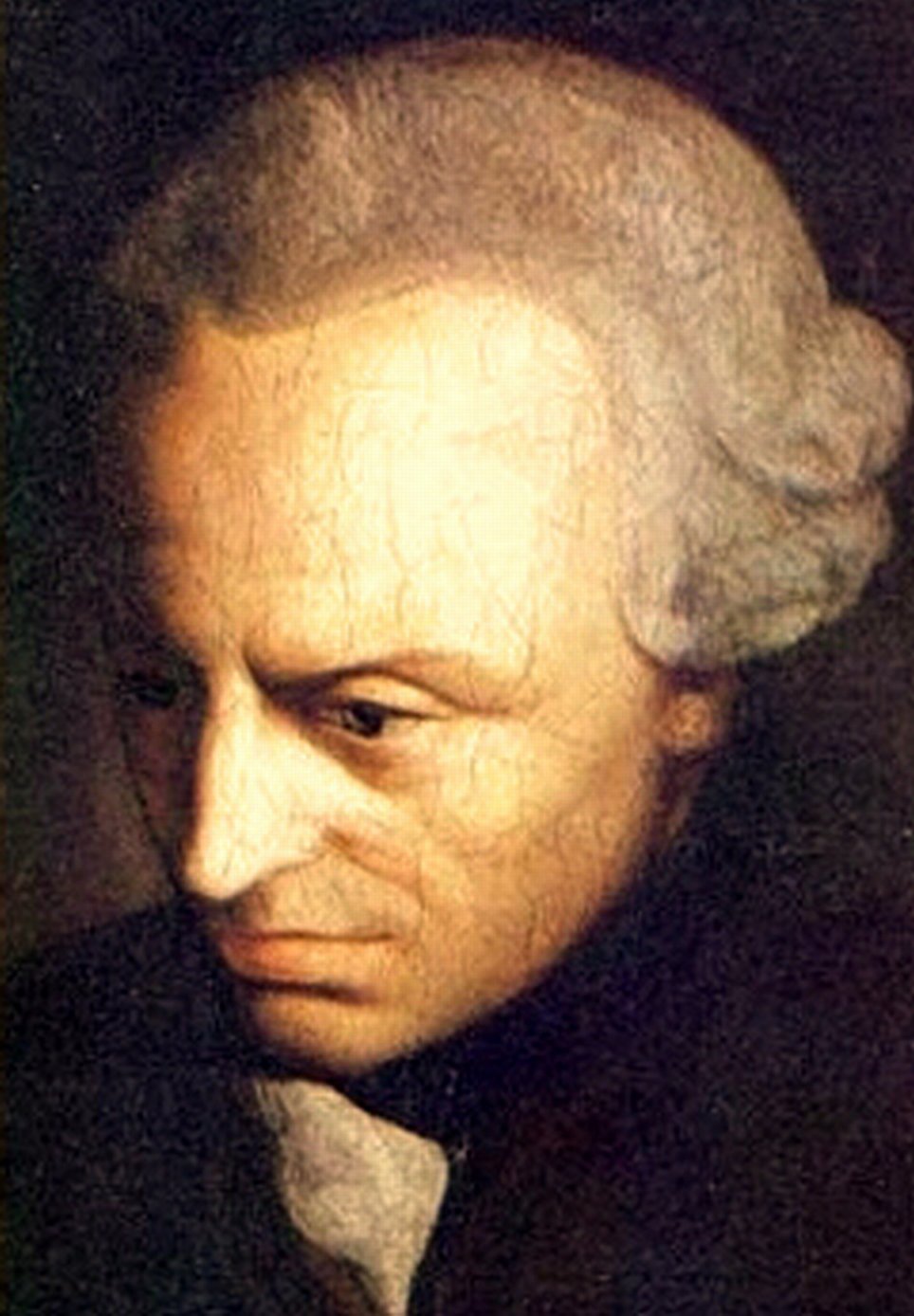


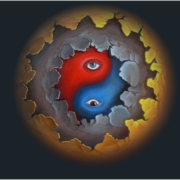
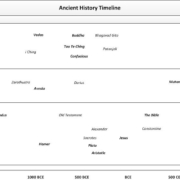
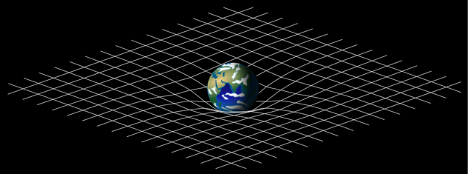
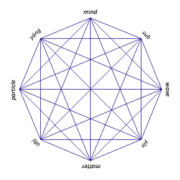

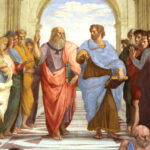
it might be worth digging about a bit with Daniel Stern’s treatment of proprioception (1987) and also Laura Doyle on Bodies of Resistance (2021)… again, the ground covered is quite staggering…. when, in a previous post, you looked at Marxist failures (and forgive my flitting about) had you considered the contribution made by Ernst Bloch?…. these contributions, I find, operate or come to life from the voids…. I thank you for your efforts to give form yet I am drawn also to formlessness….
I will take a look at the references now that I have some time for further research, thank you. Ultimately it is without name and form yes, but the path to this, it’s dissemination and transmission, requires prodding through forms – the nature of the beast so to speak.